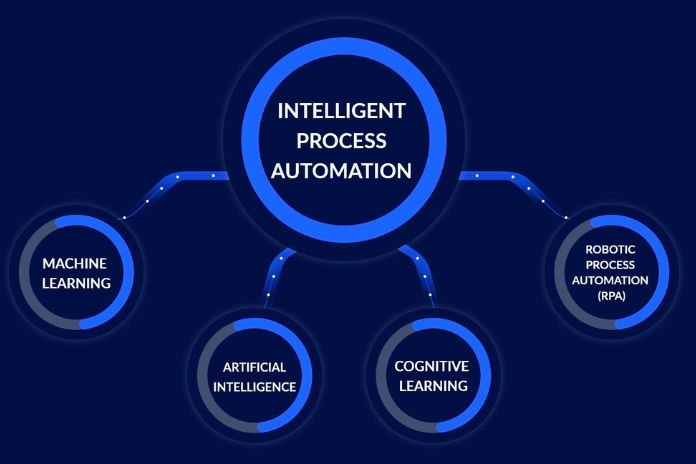In a competitive world, companies need to think about several different factors to be able to grow and gain space in the market. It is necessary, for example, to think about customers’ well-being and provide them with a pleasant experience.
However, many tasks must be followed so that the consumer leaves your company satisfied. In a clothing store, for example, the delay in service can make a customer prefer to buy from the competition. And you don’t want that, do you?
Therefore, automation is now a path of no return. With increasingly rushed customers, it is also necessary to offer faster services. The need is also huge in sectors such as Human Resources, Finance, and Sales.
In this text, you will understand the benefits of technology for companies and how process automation can benefit sectors, bringing cost reduction and increased productivity.
Want to know how this is possible? So check out our post now. Good reading!
How Technology Is Transforming Companies’ Internal Processes
Technology has changed society as a whole. The taxi has lost space for transport applications, for example. Physical stores needed to adapt to continue providing services in a digital environment. E-commerce is constantly growing.
That is, society learned to live with technology and liked it. With it, personal and professional tasks are easier to perform. Thus, it is possible to increase productivity.
In addition, with technology, the amount of data available for critical business decisions is increased. Often, choices are made according to the opinion or feelings of managers. However, sometimes the insights could be more accurate and exciting for the business future.
With the use of technologies (such as Big Data, for example), it is possible to access an incredible amount of data to transform it into relevant information for the present and future of the company by understanding the patterns and habits of consumption.
How Process Automation Works
To begin with, it is necessary to understand what business processes are used in the day-to-day of the company.
Such processes are a sequence of tasks, in order, that have agents, tools, and resources that need to be used so that a specific objective is achieved.
For example, you can think of clothing salespeople. Initially, it is necessary to welcome the customer, understand what he needs and search the stock for which parts are most similar to what he ordered. The last step is repeated until the consumer is satisfied or gives up making the purchase.
Could this process be automated? Of course, yes. Upon arriving at the store, the consumer would be approached by the salesperson, who usually listens to the customer’s demands.
ALSO READ: Shopping With Augmented Reality, The New Google Feature
Sectors That Benefit From Process Automation
Any sector or company can benefit from the automation of steps since, as you’ve seen, any business activity has processes to execute. Check now which are the most benefited.
Automation Of Repetitive Tasks
The sectors that most benefit from process automation usually involve repetitive tasks. As you saw in our first example, the clothing salesman returned several times to look for the piece that most pleased the consumer.
In this sense, automation is a critical way to save time and energy for employees. With this, the employee will be able to exercise his abilities with greater fluency and competence.
Imagine, again, our salesman. Without having to come back so often, he will be more able to convince the customer to take two pieces instead of 1 or even make an exciting promotion.
Marketing Automation
Marketing is also an area that is frequently required by automation. This happens mainly because of the need for the data you need.
Imagine, for example, that someone on the marketing team has to write all the company’s ads individually. Although managers know who the person is, they would not be able to make advertising personalized, as this would depend on detecting consumer actions and indicating a compatible product or service.
Benefits Of Implementing Technology In Processes
There are countless benefits that a company can have when implementing technology in its processes. See the main ones now!
Strategic Planning
With automated processes, you’ll have access to more data than you would if you entered it manually. With this, you will be able to have customized graphics and reports for your company’s needs.
The HR sector, for example, will be able to understand in detail and efficiently important information about the number of employees, team turnover, and expenses.
Increase In Production
Again, thinking about the clothing salesman, imagine how many more customers he can serve if he doesn’t have to go to the stock every time and if the consumer doesn’t need to go to the fitting room.
It will probably increase a lot, won’t it? Likewise, when employees do not need to repeat the same tasks, the team can produce more in less time and still take care of strategies to optimize processes further.
Cost Reduction
Only the managers of each area know how much resources are wasted in the most varied ways, whether with the incorrect use of electricity or the incorrect execution of a process.
With automation, fewer mistakes are made, and the costs derived from it will automatically be lower.
Consequences Of Not Worrying About Automating Processes
To begin with, a company that does not automate processes is far from digital transformation, which is not essential in the market. This means that the institution will take more time to optimize results and increase production.
See now, in more detail, what the losses are.
Cost Increase
Without experience with automation, the company will have more difficulties cutting unnecessary resources from the sectors. In this way, essential investments are often excluded, while others, which could be left out of planning, continue.
More Stressed Employees
That salesperson would probably not feel motivated and satisfied with making many trips to serve the customer. Even if the collaborator is dedicated, his energy would be sucked by unnecessary physical work.
